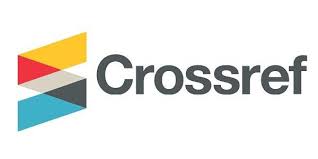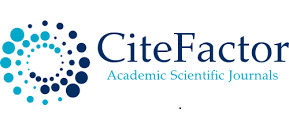Publication Ethics
Introduction
Journal Equitable (hereinafter, “JEQ”) is a peer-reviewed journal published by Faculty of Law Universitas Muhammadiyah Riau, Indonesia. This journal is available in print and online and highly respects the publication ethic and avoids any type of plagiarism. This statement explains the ethical behavior of all parties involved in the act of publishing an article in this journal, including the author, the editor in chief, the editorial board, the peer-reviewers and the publisher (Faculty of Law Universitas Muhammadiyah Riau). This statement is based on COPE’s Best Practice Guidelines for Journal Editors.
Ethical Guideline for Journal Publication.
The publication of an article in JEQ is an essential building block in the development of a coherent and respected network of knowledge. It is a direct reflection of the quality of the work of the authors and the institutions that support them. Peer-reviewed articles support and embody the scientific method. It is therefore important to agree upon standards of expected ethical behavior for all parties involved in the act of publishing: the author, the journal editor, the peer reviewer, the publisher and the society.
Faculty of Law Universitas Muhammadiyah Riau publisher of JEQ takes its duties of guardianship over all stages of publishing seriously and we recognize our ethical behavior and other responsibilities. We are committed to ensuring that advertising, reprint or other commercial revenue has no impact or influence on editorial decisions. In addition, the Faculty of Law Universitas Muhammadiyah Riau and Editorial Board will assist in communications with other journals and/or publishers where this is useful and necessary.
Publication decisions.
The editor of the Journal Equitable is responsible for deciding which of the articles submitted to the journal should be published. The validation of the work in question and its importance to researchers and readers must always drive such decisions. The editors may be guided by the policies of the journal's editorial board and constrained by such legal requirements as shall then be in force regarding libel, copyright infringement and plagiarism. The editors may co nfer with other editors or reviewers in making this decision.
Fair play.
The editor at any time evaluate manuscripts for their intellectual content without considering race, gender, sexual orientation, religious belief, ethnic origin, citizenship, or political philosophy of the authors.
Confidentiality.
The editor and any editorial staff must not disclose any information about a submitted manuscript to anyone other than the corresponding author, reviewers, potential reviewers, other editorial advisers, and the publisher, as appropriate
Editors
Editors have the following responsibilities:
- To decide which of the articles submitted to the journal should be published. Editors are accountable and responsible for everything they publish.
- To decide to accept or reject a manuscript for publication with reference only to the manuscript’s importance, originality and clarity, and its relevance to the journal.
- To acknowledge receipt of submitted manuscripts and to ensure the fair, efficient and timely review process of submitted manuscripts.
- To assess manuscripts for the intellectual subject matter disregarding race, gender, religious belief, sexual orientation, ethnic origin, citizenship, or political philosophy of the authors.
- To guarantee that submitted manuscripts are handled in confidential conduct, with no details being disclosed to anyone, with the exception of the reviewers, without the permission of the author, until a decision has been taken as to whether the manuscript is to be published.
- Not unveil any information about a submitted manuscript to anyone excluding the corresponding author, reviewers, potential reviewers, other editorial advisers, and the publisher, as appropriate.
- Not to use for their research, work reported in unpublished submitted articles.
- To act in response to any suggestions of scientific misconduct or to convincing evidence that the main substance or conclusions of a published manuscript are mistaken, usually through consultation with the author. This may necessitate the publication of a formal withdrawal or amendment.
- To determine rationally responsive measures when ethical objections have been presented concerning a submitted manuscript or published paper, in association with the publisher (or society).
Reviewers
Reviewers should:
- Only agree to review manuscripts for which they have the subject expertise required to conduct an appropriate evaluation and which they can assess promptly.
- Acknowledge that peer review is a reciprocal effort and undertake to conduct their fair share of reviewing and promptly.
- Be objective and constructive in their reviews, abstaining from being hostile and from making offensive personal remarks.
- Have a non-influenced review, neither by the author’s nationality, religious nor political beliefs’ of the author, gender nor other characteristics of the authors nor by commercial considerations.
- Treat any manuscripts received for review as confidential documents. They must not be shown to or discussed with others except as authorized by the editor.
- Not use information obtained during the peer-review process for their own or any other person’s or organization’s advantage or to disadvantage or discredit others.
- Recognize relevant published work that has not been referred by the authors. Any statement that an observation, derivation, or argument had been previously reported should be completed by pertinent reference.
- State all possible conflicting interests, looking for the recommendation from the journal if they are hesitant whether something constitutes a relevant interest.
Authors
Authors have the following responsibilities:
- To present a report of the research that has been conducted in an ethical and responsible manner.
- To present their results, truthfully, and without fraudulent, misrepresentation or improper data manipulation.
- To provide, if needed, the unprocessed data in connection with a paper for editorial review.
- To ensure that the work they submitted is an original work. If the authors have used the work and words of others that this has been appropriately cited or referred. Plagiarism in all its forms comprises unethical publishing manners and is intolerable.
- To describe their methods clearly and explicitly so that their findings can be confirmed by others.
- Take collective responsibility for submitted and published work.
- The authorship of research publications should precisely reveal individuals’ contributions to the work and its reporting.
- To disclose in their manuscript any financial or other substantive conflicts of interest that might be construed to influence the results or interpretation of their manuscript. All sources of financial support for the project should be disclosed.
- To report without delay the journal editor or publisher if an author notices a major inaccuracy or erroneousness in his/her published work. He/she has to collaborate with the editor to withdraw or correct the paper.












